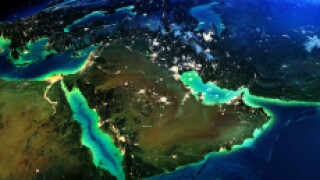Middle East
-
Argentina and Turkey are firmly established as volatile names in emerging market credit. Both sovereigns have political and economic issues that place them in the highly vulnerable bracket.
-
The US real estate investment trust Reality Income is planning a £300m bond sale to part finance its acquisition of 12 properties in the UK linked to grocer J Sainsbury’s.
-
Turkey’s central bank on Thursday kept its policy rate at 24% and removed a commitment to tighten monetary conditions further if needed. The announcement disappointed investors, and is expected to intensify the sell-off in the lira.
-
The US decision not to renew sanction waivers for Iran’s remaining export markets has boosted the price of oil and opened a window for oil and gas capital markets activity, write Sam Kerr and Mike Turner.
-
Saudi Telecom Company is embarking on investor meetings to market a debut benchmark dollar Reg S/144A sukuk. However, investor enthusiasm for Saudi corporate bonds may have been dented as the $12bn bond Aramco printed a fortnight ago remains wide of reoffer.
-
UAE alternative investment and asset management firm, Gulf Capital, has closed a $136.12m-equivalent revolving credit facility.
-
Islamic Development Bank and Qatar National Bank hit the market for dollar paper on Wednesday, scooping up funds ahead of Ramadan.
-
First Abu Dhabi Bank and Emirates NBD have printed sterling MTNs this week, adding to a flurry of deals in the currency from the Middle East.
-
Bank of America has hired for its hybrid capital structuring team from Morgan Stanley.
-
A surge in shareholder activism is providing banks with a lucrative new source of revenue, but they have to tread carefully or risk losing treasured corporate relationships, writes David Rothnie.
-
Islamic Development Bank is expected to raise $1.5bn with a five year sukuk on Wednesday.
-
The calls have started to emerge for Turkey to turn to the IMF. Turkish president Recep Tayyip Erdoğan has always been dead set against the idea — and perhaps that’s for the best.










